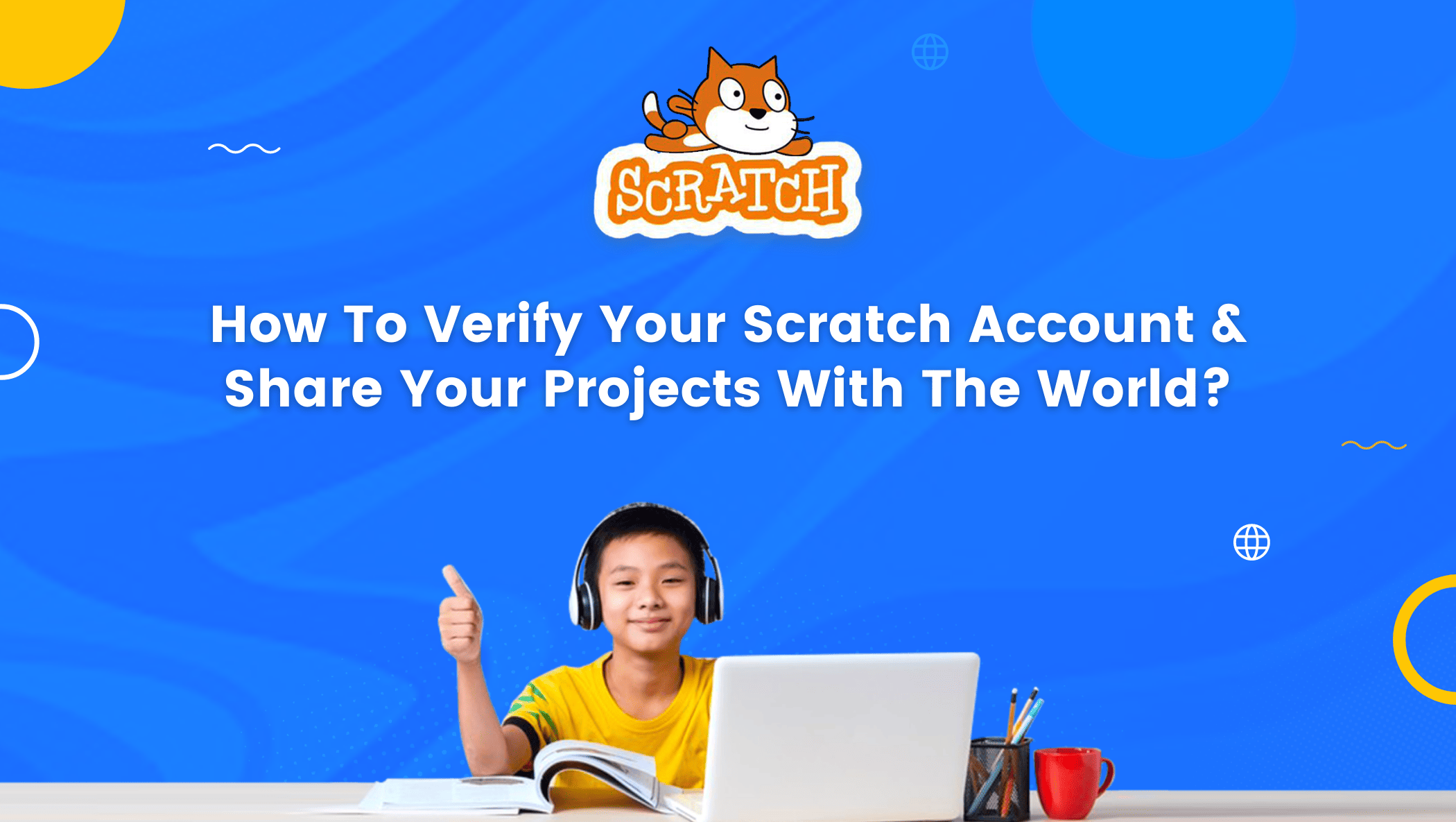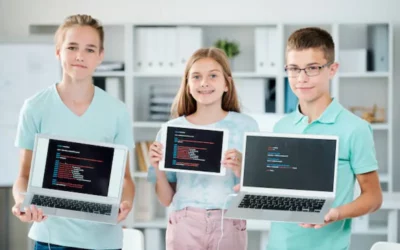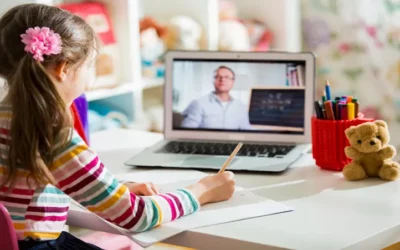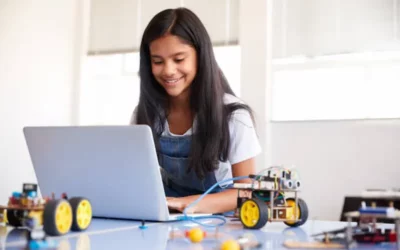The largest children’s coding community in the world and a coding language with an easy-to-use visual interface, Scratch, enables kids to make digital stories, games, and animations.
More than 70 different languages are supported by Scratch, which is always free.
One of the most crucial components of using the Scratch platform is confirming and authenticating your Scratch account, which will be covered in this article.
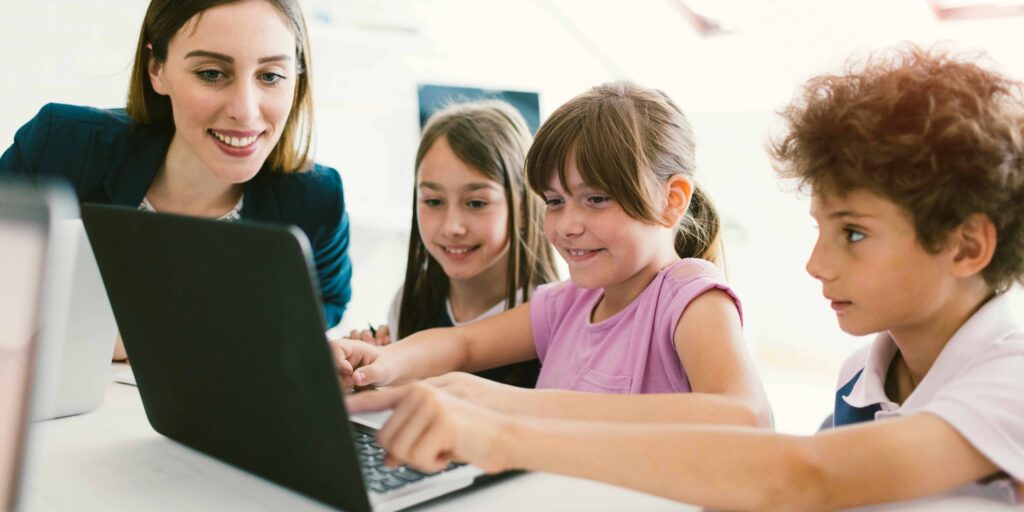
I’ve explained why it’s necessary as well as its importance below, so keep reading to learn how to confirm and verify your Scratch account.
Table of contents
Why Scratch?
Through the use of Blocks, Scratch teaches children how to code. Coding, in general, makes inventive ideas a reality.
Additionally, it encourages youngsters to think creatively, improves their ability to solve problems logically, and encourages them to seek out the positive and negative aspects of every scenario in their lives, not just in coding.
Know more about scratch coding for kids
Why Block-based Coding?
Block-based coding helps kids to learn concepts more clearly and easily.
For example, teaching Block mode coding is like teaching kids how to make sandwiches, once they are clear with making a sandwich it will be easy for them to bake the bread which is script mode code.
Steps To Join Scratch
Step1: In the address bar type scratch.mit.edu and hit the enter button.
Step2: When you press the enter key, a window will open, and in the top right corner, click on “Join Scratch,” as shown in the image below.
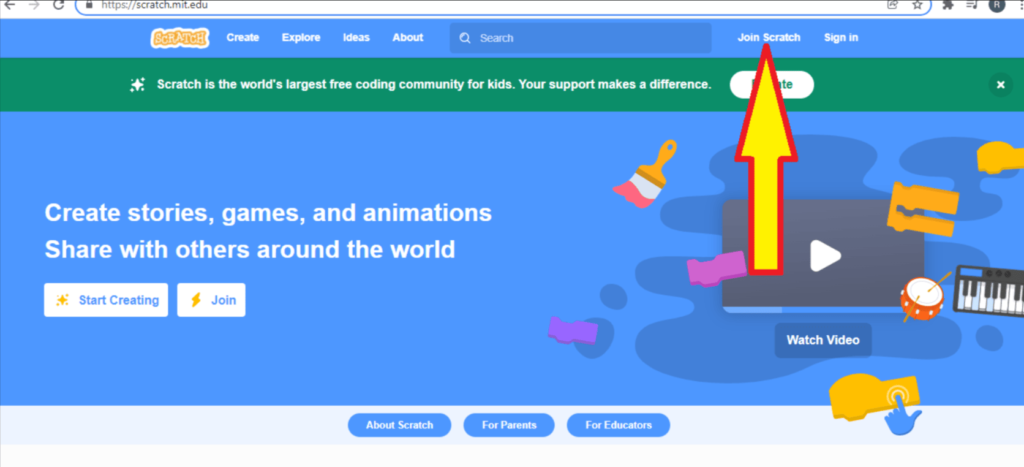
Step 3: When you select the Join Scratch option, you will be taken to a page where you must create a unique username and password before clicking the yellow Next button.
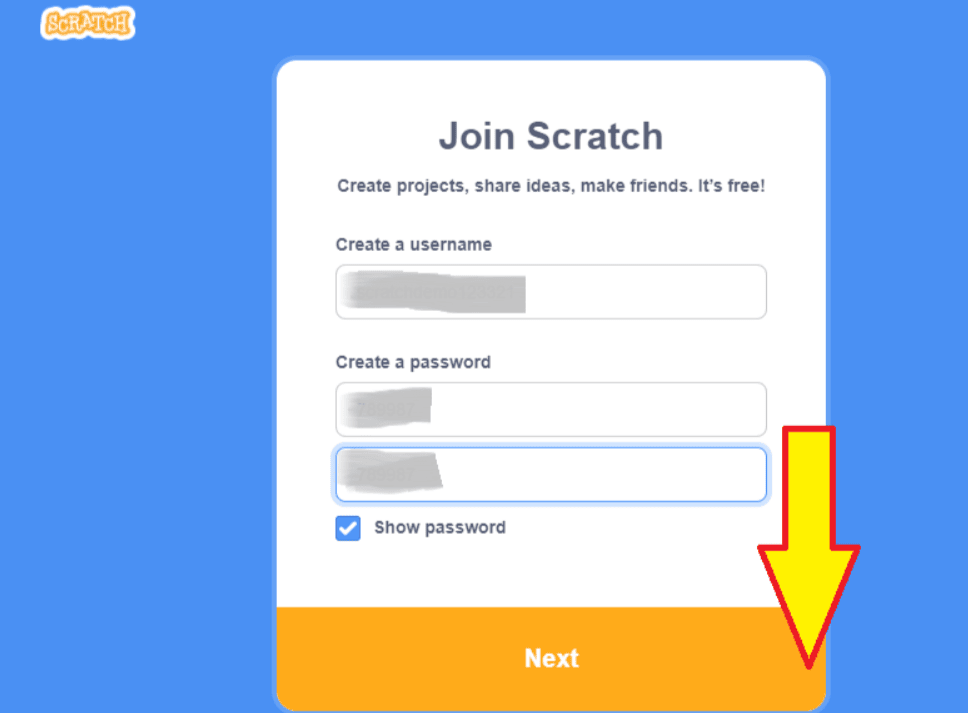
Step 4: The next step is to decide which nation you reside in. To continue, click Next after choosing your nation.
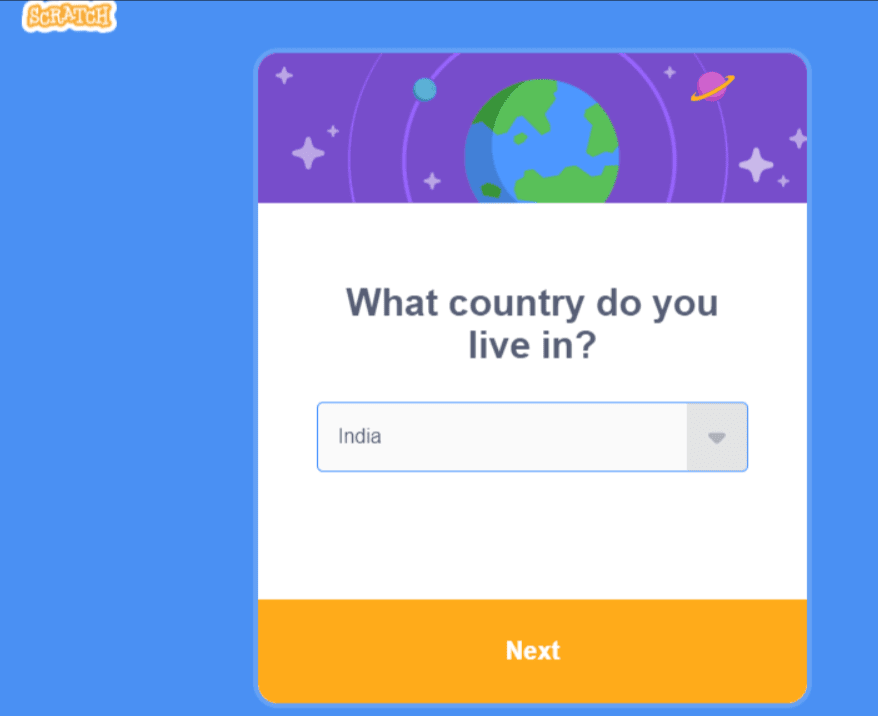
Step 5: The next step is to enter your Age as shown below in the image.
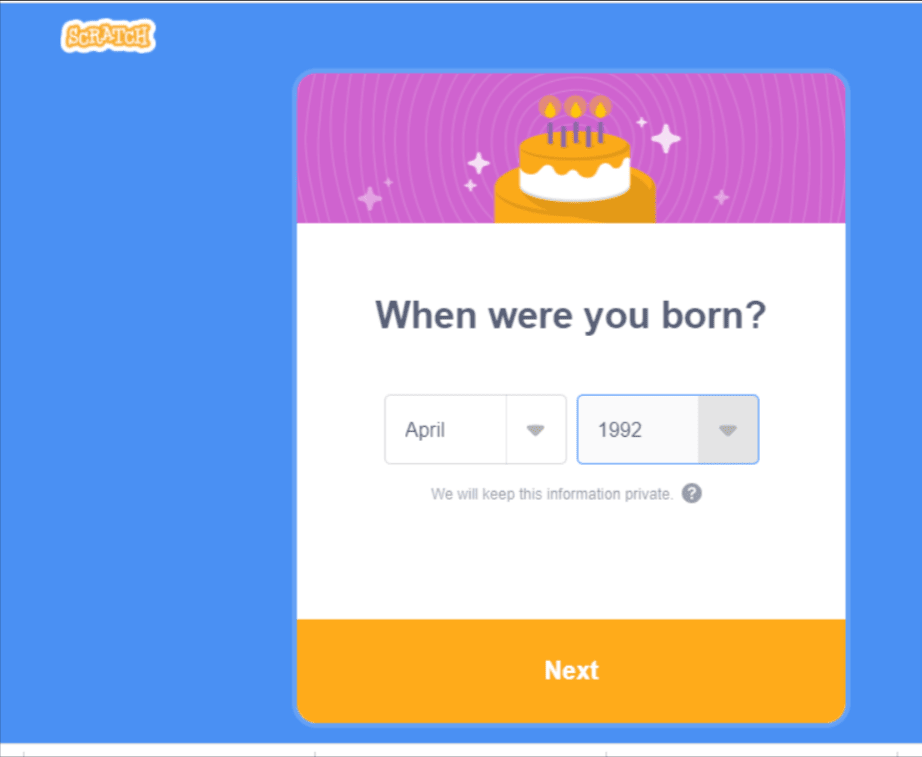
Step 6: In this step, give your gender details.
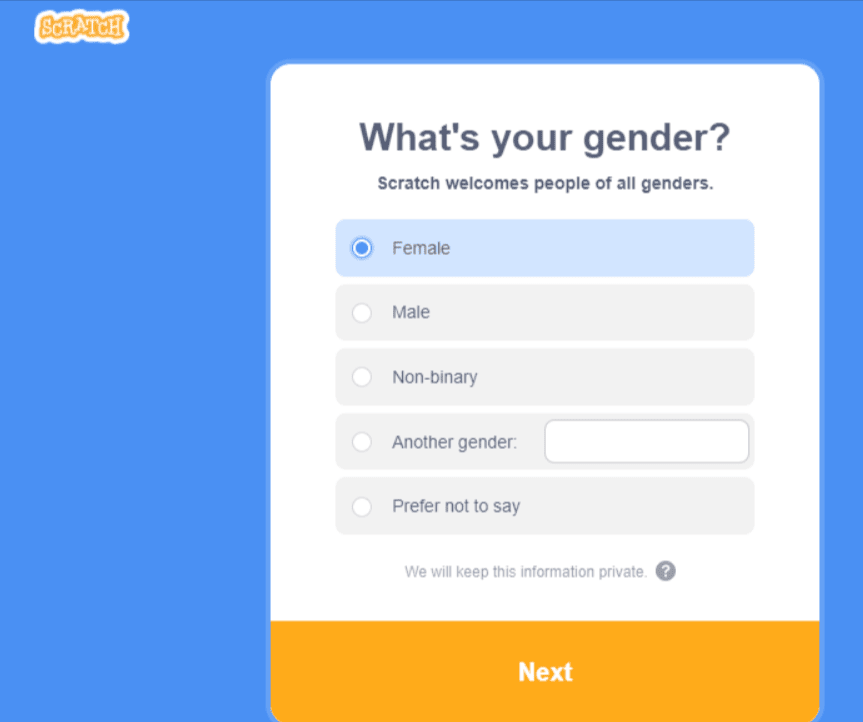
Step 7: This is a critical step in getting verified, as you must provide your valid email address to confirm your account.
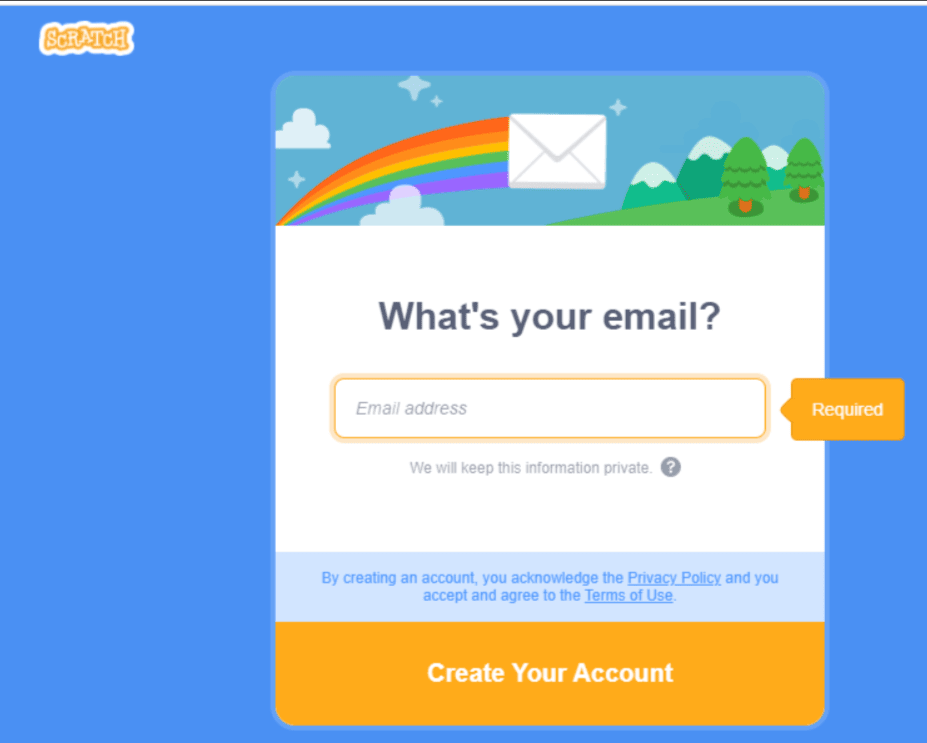
Hurray! The account has now been created, and you can begin exploring the platform by clicking on the GET STARTED button.
However, to share your Scratch projects with others you must verify your Scratch account. Follow the steps below to do so!
How To Confirm and Verify Your Scratch Account
Here is the step-by-step guide to verifying your Scratch account after you create it.
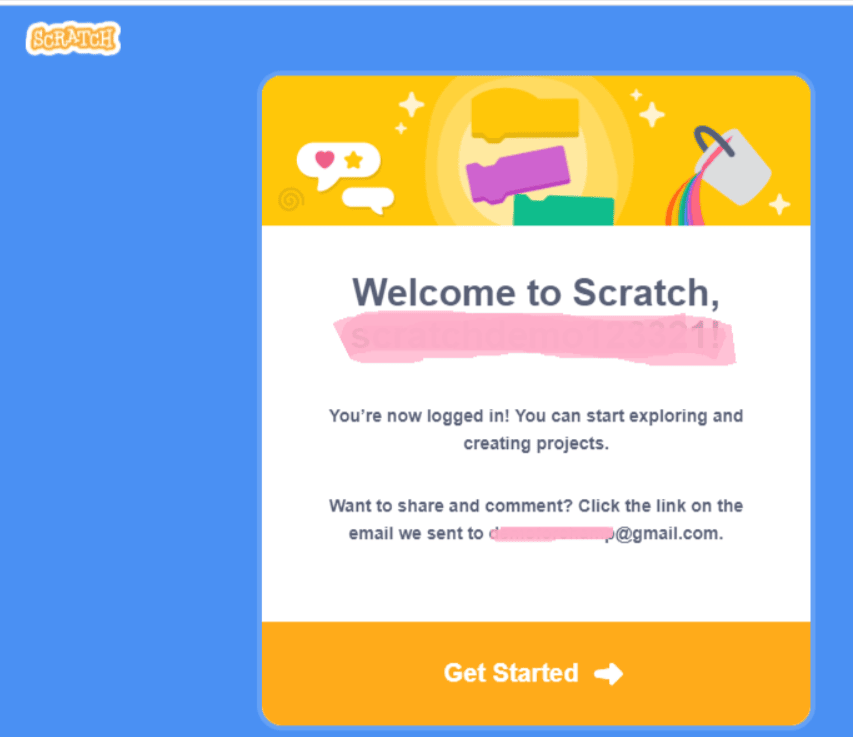
Step 1: Once u click on the GET STARTED button, the Scratch home page will open as shown in the image below. Click on confirm your email to enable sharing i.e. to verify your Scratch account.
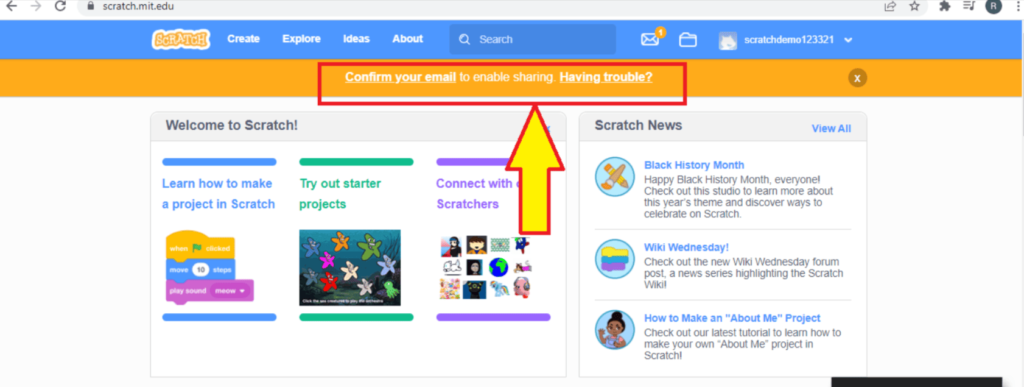
Step 2: A pop-up window will appear with your entered email address; if you are having trouble with this process, you can refer to the tips.
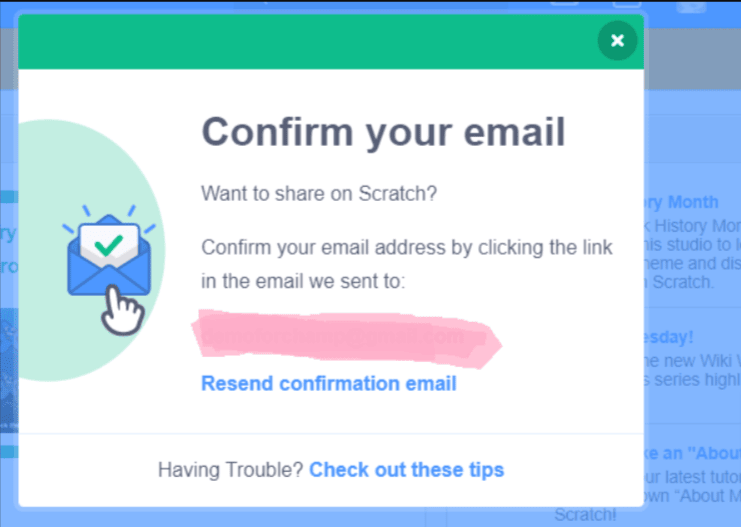
Step 3: The next step is to open your registered email address’s inbox and simply open the mail where you would have received a message that says Confirm your Scratch account. An example has been shown in the image below.

Step 4: Once you open the e-mail, a window shown below will open. Click on the blue button which says “CONFIRM MY ACCOUNT”.
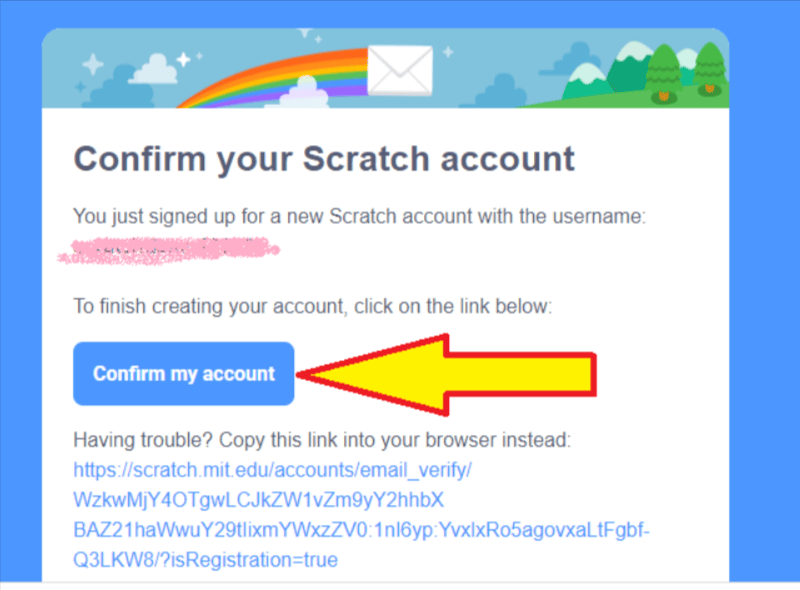
That’s it! That is all that it takes to get verified on Scratch.
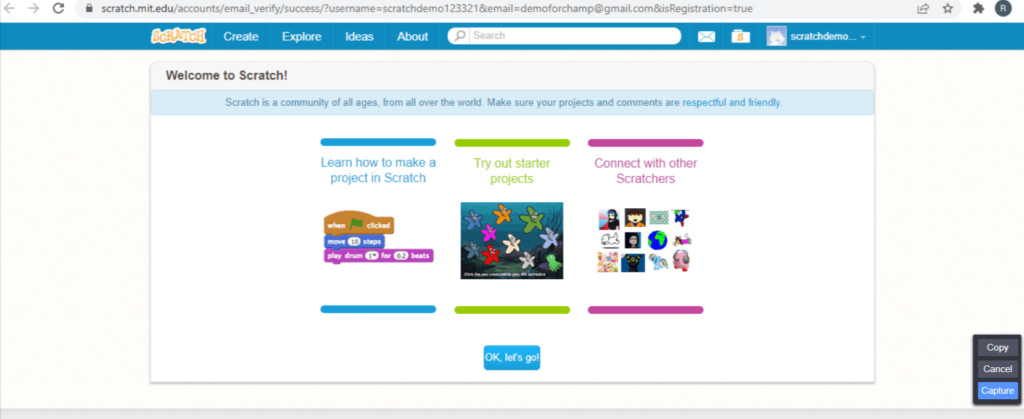
Conclusion
The majority of individuals in the programming community are familiar of Scratch, a free platform that enables users to produce incredible games, animations, and other projects. Scratch makes project creation simple.
Furthermore, it costs nothing to register for a Scratch account, but that doesn’t mean you can store or share the projects you make. The platform is only for coding education.
To get your hands on more educational and free resources on coding for kids, financial education for kids, and robotics for kids do check out the BrightCHAMPS Page now!
You must validate your Scratch account before you can save and share your projects. Use the procedures listed above to verify your Scratch account if you haven’t previously.
Learn Scratch at BrightChamps with its specially designed curriculum that makes learning programming easy for students in Grade 1-12.
BrightChamps also teaches a variety of other programs that help kids build a foundation in computer programming through activities, interactive lessons, and other means.

